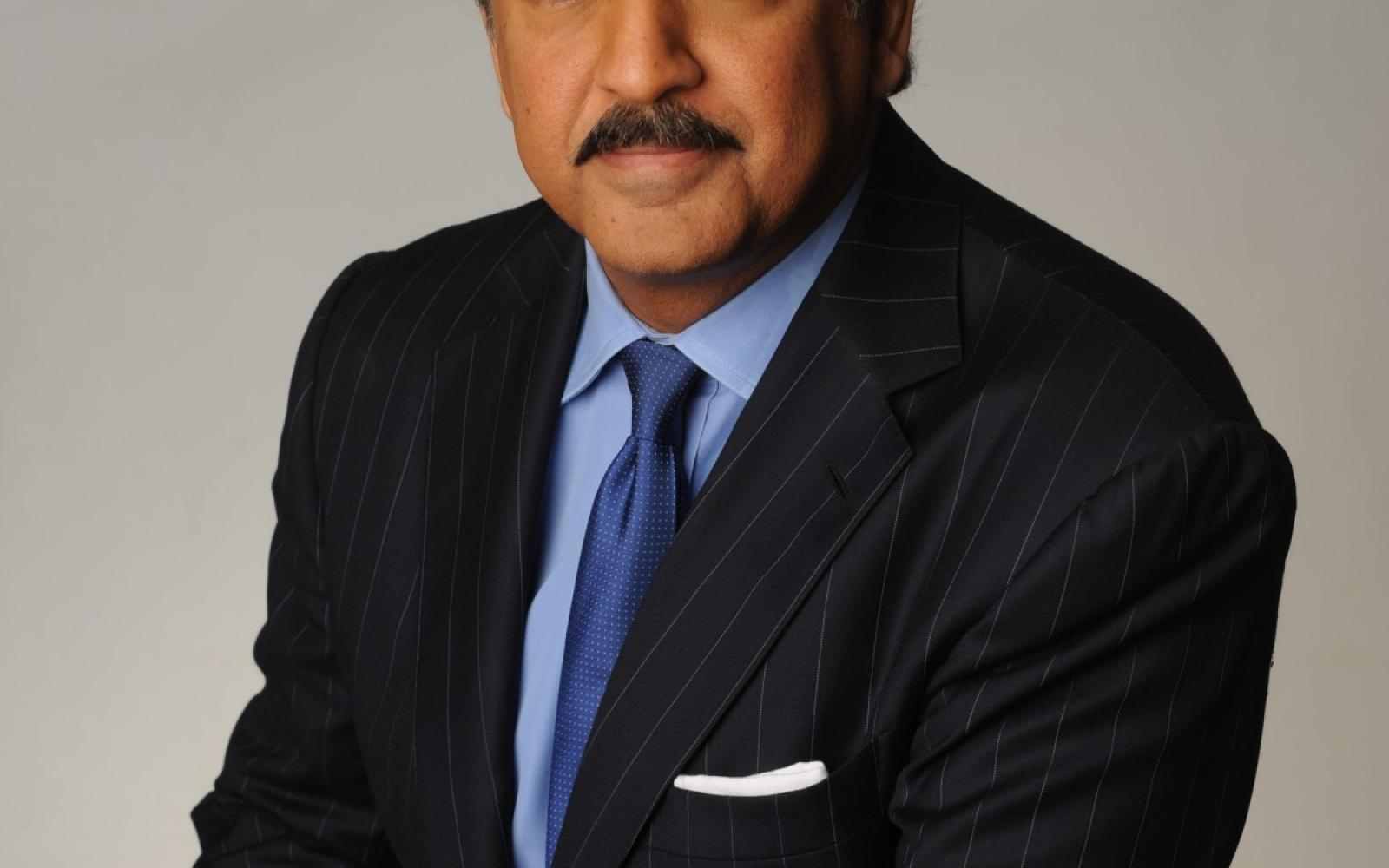Empathy, Not Bureaucracy, Makes Organizations Great -- Leadership Lessons from Anand Mahindra

Anand Mahindra, CEO of Mahindra Group, an Indian multinational conglomerate with a presence in over 100 countries, sat down with Ashoka entrepreneur Ashwin Naik to share his journey, influences and ideas on the central role empathy must play if we want to be great business leaders in today’s world. His mastery of this complex skill helped grow his company to $17 billion in revenue while positioning Mahindra Group as one of India’s most respected and innovative companies around the world.
Ashwin Naik: You grew up in an eclectic home, full of different experiences. How did that impact who you grew up to be?
Anand Mahindra: My mother was a writer. She acted in one film before she decided that Bollywood wasn’t good enough for her. My two sisters and I probably learned from her how to get under other people’s skin. In contrast, my father was a simple man, despite his success at business. He was a people person, and I think that’s what led him to join politics. His outstanding characteristic was humility, and I hope I’ve learned it from him. If you aren’t humble, whatever empathy you claim is false and probably results from some arrogance or the desire to control. But true empathy is rooted in humility and the understanding that there are many people with as much to contribute in life as you.
Naik: You walked down quite a few paths as a young learner. Was that an attempt to understand different roles, to ‘get under other people’s skin’?
Mahindra: My own ambitions were eclectic. My father ran a steel plant and I was expected to study metallurgy and end up at the steel plant when I finished high school at age 15. Despite my proficiency at science, I decided against it and instead went on to study filmmaking. I wanted to explore the range of things that life has to offer and during those years, I really found myself. Being tied down to a pre-med or engineering track would have slotted me into a very narrow group. Being a young filmmaker allowed me to explore many areas of life and many kinds of people. So when you combine the influence of my parents, their personalities, and the life I chose for myself as a student, I think that’s what really set me up for a lifetime of being continually curious and empathetic.
Naik: One of our key challenges as parents or educators is to instill empathy in our kids and help them master this complex skill that everyone needs in our hyper-connected world. How can we get this done?
Mahindra: Yes, it’s a very complex topic. How can you instill or inspire empathy? First of all, you have to walk the talk yourself. You have to be a model. You can’t sit someone down in a classroom and deliver the ten commandments of empathy. Be a good role model yourself and you will influence a certain mode of behavior.
Naik: When you look at the next generation of leaders, what do you see changing for them? What must business leaders do differently?
Mahindra: The biggest challenge will be how to organize differently to attract and retain Millennials. This generation is wired differently. If you’re a hierarchical leader, if you’re bureaucratic and not empathetic, you’re going to be dead in the water. Take the example of our auto division, which was voted as the best place to work in the Indian auto industry. It’s a huge accomplishment for what was one of our oldest businesses, and historically, the most bureaucratic. How did we turn things around? It’s not like I prescribed a plan to get this done. Everyone who works with us is encouraged to explore and contribute. Our job in the corporate sector is to create exposure to new concepts, spark conversations among the various elements in the group, and constantly enrich the ecosystem with ideas. The questions are: Who is catching these ideas? Who is taking them further? This becomes a way to describe great leadership: No prescriptions. Instead, create a rich environment for growth – everyone’s growth. The person who is skilled enough to grab those nutrients is probably your future leader.
Naik: And how does it change the role of leaders like you?
Mahindra: My belief has been that if indeed a leader is empathetic and empowering, and delegates, then you have to make sure that people whom you have chosen to lead also demonstrate and follow that principle. Innovation only happens in an organization where its people feel empowered, understood, and trusted with the work delegated to them.
People do not innovate in a climate of fear, hierarchy or bureaucracy. In a hyper-competitive world, the benefit of innovation is an obvious one. You have to position empathy as a key element in building a more innovative organization. But you can’t simply sit people down and read them the riot act and say, “You will have empathy now.”
You hope that the leaders you appoint will combine the experience and the functional skills they need to manage with empathy. If they lack empathy, then one has to constantly have many more conversations with them on why that element is important. That, today, is any leader’s major role.
This interview with Anand Mahindra is a part of Ashoka’s E2 – Entrepreneur to Entrepreneur – series with influential entrepreneurs and CEOs who are changing the game of business leadership around the world.